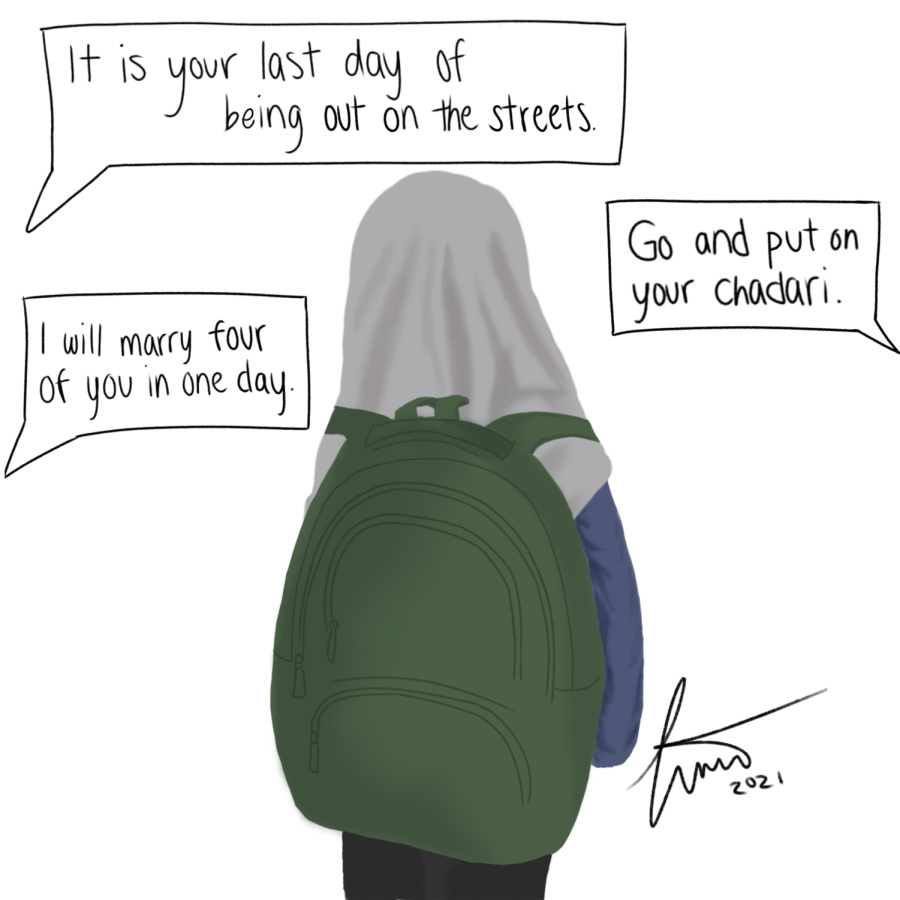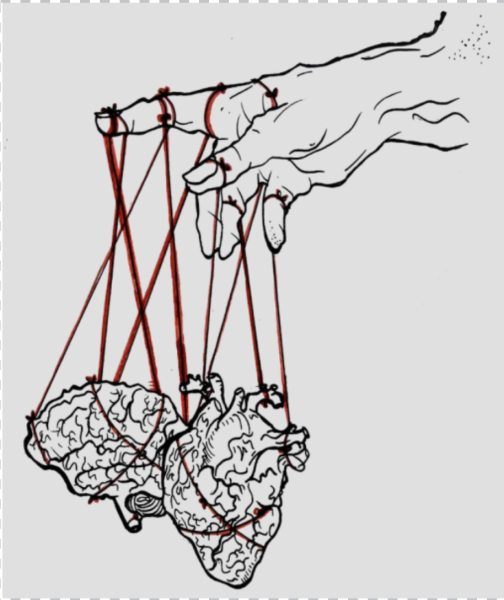It’s Now or Never
In August 2021, early on a Sunday morning, a young woman was walking to university. Meanwhile, men she passed on the street were laughing at her. They were laughing at her terror. “Go and put on your chadari [burqa],” one called out. “It is your last day of being out on the streets,” said another. “I will marry four of you in one day,” said a third (CNN).
This is how women are treated in Afghanistan. No respect. No freedom. No value. I wake up every morning to my alarm and dread getting up and going to class, but I put on whatever outfit I choose and walk out the door. I take for granted the fact I can walk the streets of this town without worrying about the threats given above just because I’m a woman.
Imagine waking up every morning with the fear that your life could be taken and the only place where you feel “safe” is at home wearing a burqa, simply because you’re a woman. Picture not having sufficient access to adequate healthcare as women are no longer allowed to work as doctors and females must only see female medical staff. Imagine your parents marrying you off at the age of 16. Imagine not having a formal education. As hard as this may be to believe, this is what women and young girls in Afghanistan deal with every day of their lives.
Afghanistan is undergoing reconstruction after many years of war and the reign of the Taliban. From 1995-2001, Afghanistan remained under dictatorial leadership by the Taliban, who in turn encouraged the systemic oppression of women and girls. The Taliban’s brutality was so extensive that it resulted in the denial of means of communication between anyone but family. In most cases, women remained locked in their houses surrounded by small dark windows which prevented public intermingling. An Afghan woman could only walk in public accompanied by a male member of her family.
Leaving a place that feels unsafe is a human right. However, for Afghans, it is reserved for the lucky few (600,000) who have managed to escape the rule of the Taliban since January 2021 (UN).We as individuals who live internationally outside of Afghanistan might be able to understand what it must feel like leaving a place that one calls home. However the difference is that we have often chosen to migrate to a new country, with financial and social security and with confidence that our human needs will be met. Most refugees fleeing Afghanistan do not want to leave. They leave because the fear of staying outweighs the huge risks they are taking in the hope of a better life; home is where memories, dreams, and relationships lie, as they know that once they leave their home, they will never come back. This, while unfair, grants them their best chance for survival. When looking at the pictures arising from mainstream media, what haunts me most is the footage of two young boys tying their hands to the US planes. When the planes took off, the lives of those highly valued arose, while the lives of those considered useless fell.
It is not the time for us to sit back and watch. To let this humanitarian crisis kill thousands of people is inhumane. To allow women and girls not to have access to education is inhumane. To allow children to fall off planes, as they are desperately finding ways to leave the country is inhumane. To permit countries to focus on their political and economic growth rather than helping the situation in Afghanistan is inhumane.
As fellow humans here are some ways we can help and support those in need
- The Afghan Australian Advocacy Network is made up of several different ethnic and religious groups whose aim is to urge the federal government to increase humanitarian intake and grant permission to protect the people of Afghanistan.
- Asylum resource centres have a list of legal assets. Legal refugees also have hotlines for those impacted by the crisis.
- Major international NGOs: Red Cross, International Rescue Committee, and the UN Human Rights Committee seek donations in order to support their front line work in Afghanistan.
- Danish organization, International Media Support, are calling for donations to support Afghan journalists who may be vulnerable to Taliban violence. Lastly, Miles4Migrants accepts donations in air miles for individuals with legal approval for travel who cannot afford the costs.
- Support the School of Leadership Afghanistan directly or by organising your own event GlobalGiving.
It’s now or never. There is no second option.







